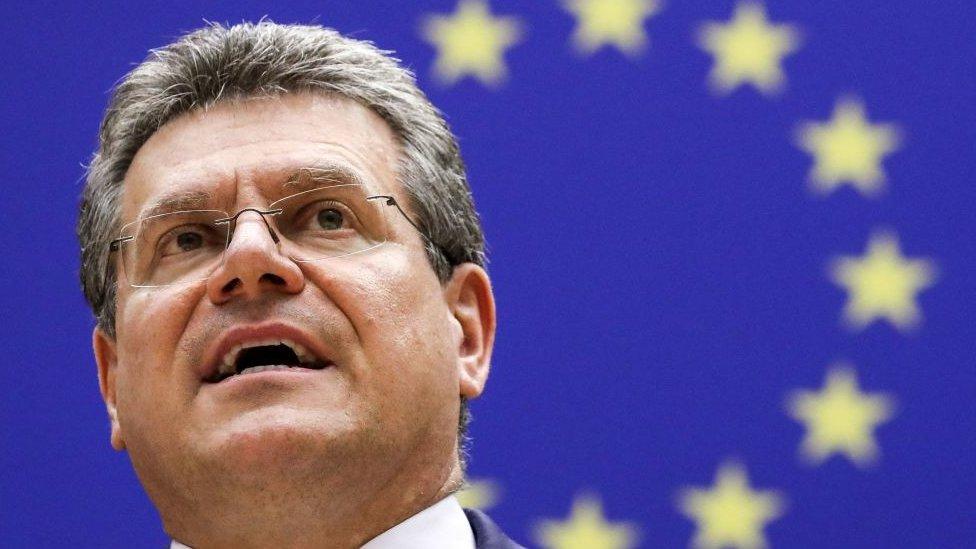Brexit: Ignoring parts of Northern Ireland Protocol is legal, says attorney general
- Published
- comments
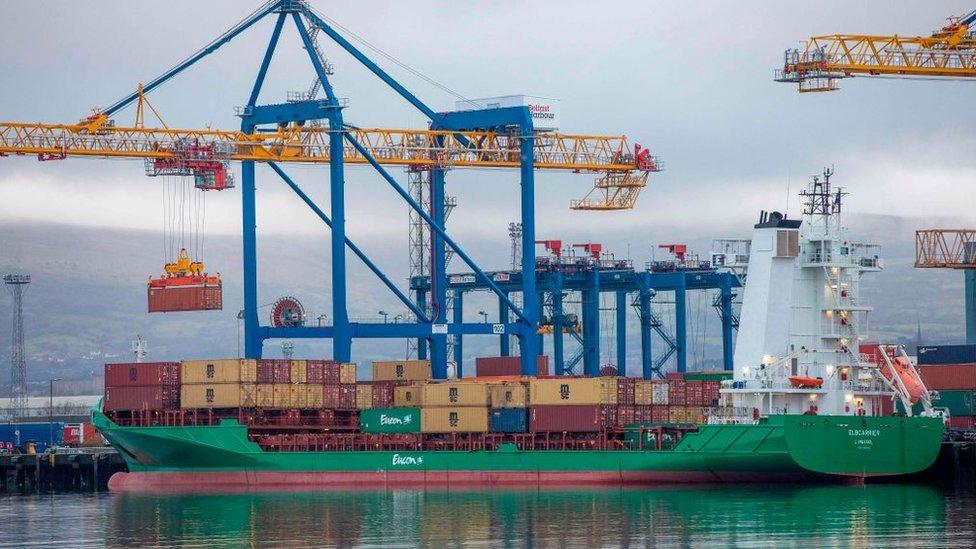
The protocol imposes checks on goods between Britain and Northern Ireland, which angered unionists
The government's chief law officer has received legal advice it would now be lawful to override parts of the Brexit arrangements for Northern Ireland.
This could allow scrapping checks on goods going from Britain to Northern Ireland, which angers unionists.
The EU has warned it could retaliate by introducing trade sanctions.
It is understood no final decisions have yet been made by UK ministers, including whether to move ahead with scrapping parts of the protocol.
But a call between European Commission vice president Maros Sefcovic and Foreign Secretary Liz Truss on Thursday has been described as "tetchy".
In the call on Thursday morning, Ms Truss warned the EU that if it did not show the "requisite flexibility" over the protocol, the UK would have "no choice but to act".
The Foreign Office said she had told Mr Sefcovic the UK's "overriding priority is to protect peace and stability in Northern Ireland".
Ms Truss said the protocol was "the greatest obstacle" to forming a new power-sharing executive in Northern Ireland.
The Northern Ireland Protocol has been a contentious element of the Brexit treaty, signed by the UK and the EU in December 2020,
The new legal advice could open the way for the British government to implement its repeated threats to get rid of parts of the protocol.
The arrangements were designed to avoid the need for a hard border with the Irish Republic - which remains part of the EU - and customs checks on that frontier post Brexit.
Many believed that could have threatened the peace in Northern Ireland ushered in by the Good Friday Agreement. But unionists argue the Protocol created a border in the Irish Sea instead, causing Northern Ireland to be treated differently from the rest of the UK.
Grace periods
The EU proposed changes to the protocol in October, focused on reducing inspections of food products in particular, but Ms Truss has rejected this plan.
Because of grace periods, the protocol is not yet being fully implemented, so the UK has argued that the changes being proposed would actually increase checks and controls, leading to "everyday items disappearing from the shelves".
Mr Sefcovic has previously called on the UK to "dial down the rhetoric" and to "be honest" about what it committed to when it signed up to the protocol.
The Times, which first reported the change in legal advice, external, said the attorney general argued that signs of violence - such as a hoax bomb attack targeting Irish Foreign Minister Simon Coveney in March - justified the UK overriding the deal to keep the peace.
On Wednesday, the prime minister said the Good Friday Agreement, which set up a cross-community power-sharing government as a way of ending decades of violence. was more important than the protocol.
He dismissed suggestions of retaliation by the EU as "crazy", saying there was no need for "drama".
Mr Johnson said the protocol was not commanding cross-community support and "we need to sort it out".


At the moment it's not clear what the government intends to do: trigger Article 16 or something more dramatic?
Article 16 is part of the Northern Ireland Protocol and allows either party to suspend parts of the deal if it's causing serious problems.
Some of what has been briefed by the government sounds like they have taken legal advice on Article 16; phrases like "diversion of trade" and "societal difficulties" refer directly to justifications for using Article 16.
But the Times story also refers to legislation which would "scrap" or "override" the protocol.
If the government is going down a separate legislative route to remove parts of the protocol in UK law, it's not clear why they would bother sounding out justifications for Article 16.
Not using Article 16 would be a bigger step as it would involve stepping well outside the bounds of the deal and be seen by the EU as a breach of the treaty and of international law.
A few months ago, the idea was floated that Article 16 could be used alongside domestic legislation which could provide legal clarity to business.
Perhaps that's back in the agenda.

Former Brexit Minister Steve Baker said the UK had signed up to the treaty "under consider political duress in the UK".
Asked about the possibility of a trade war, Irish Foreign Minister Simon Coveney said Brussels wanted a compromise.
But he warned: "Clearly, if the UK breaches international law, if it undermines a protocol that is about protecting the integrity of the EU single market, then the EU can't ignore that."
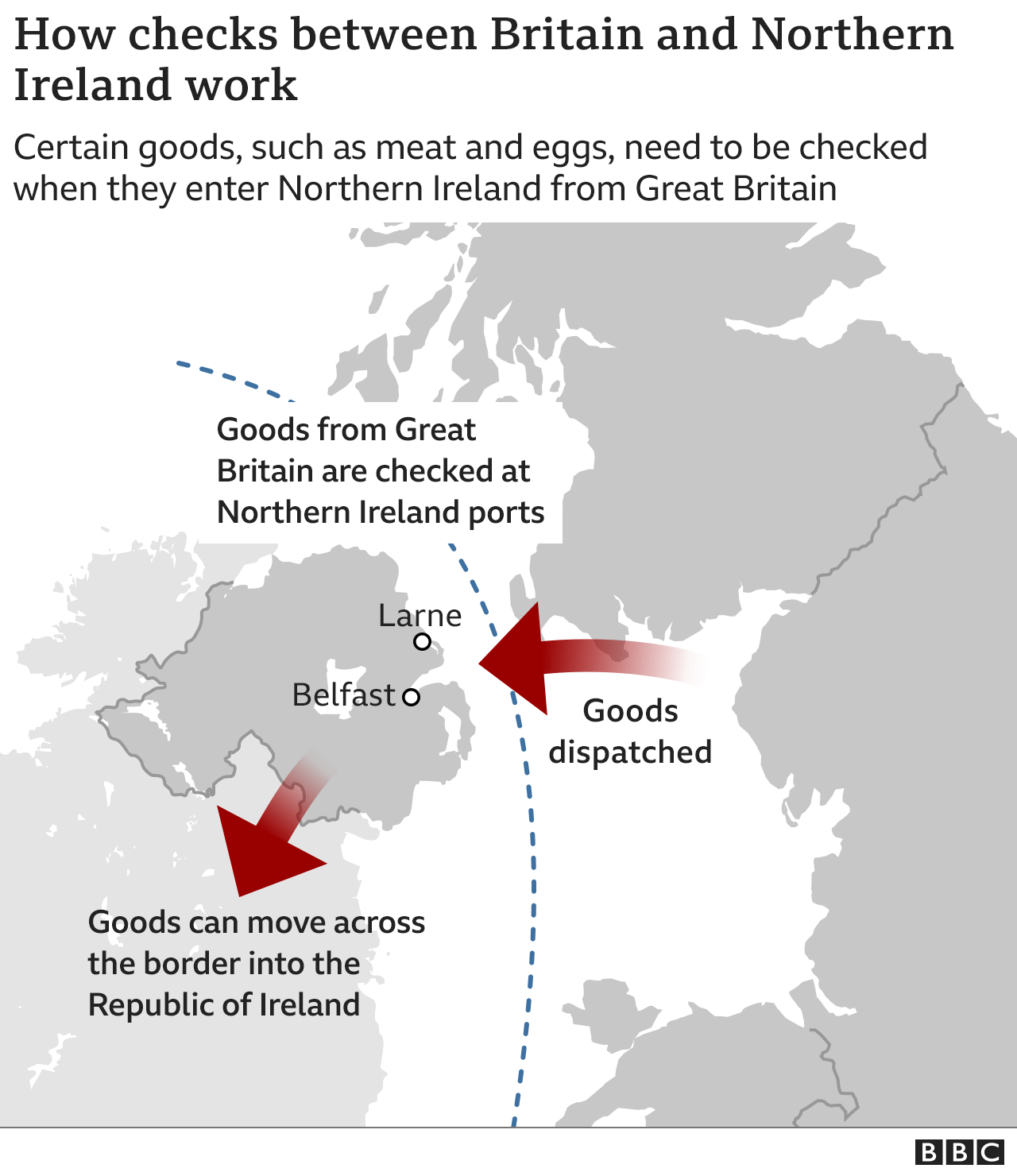
The process of changing the trade arrangements is likely to take more than a year, with the House of Lords expected to try to block and delay the government's legislation.
A stand-off which emerged from the Northern Ireland Assembly elections has increased the urgency, however.
The Democratic Unionist Party - which came second in the poll behind Sinn Féin and backs continuing the union between Great Britain and Northern Ireland - is refusing to nominate ministers to help form a new executive until its issues with the trade protocol are tackled.
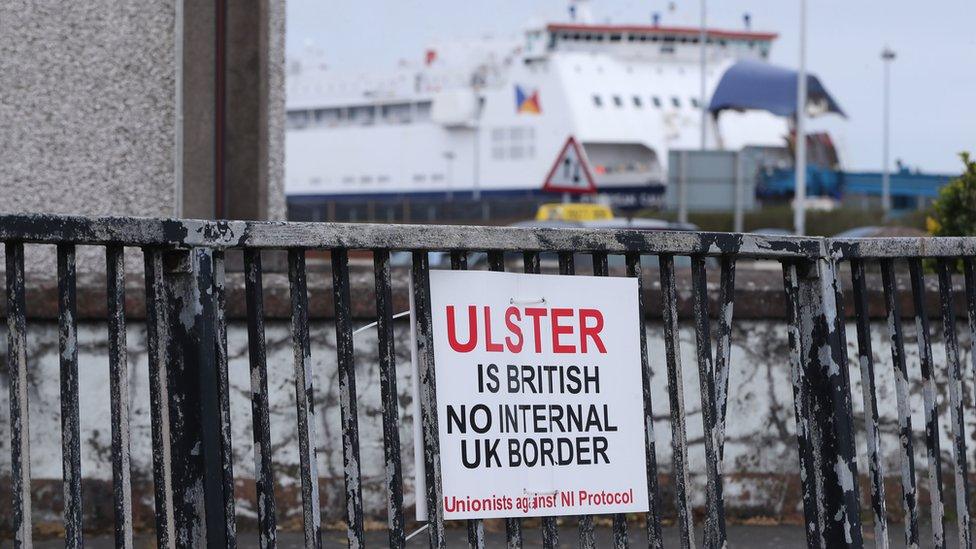
The UK government is concerned anger over the trade arrangements could lead to social unrest
The election established a majority for assembly members who support the protocol, with the republican party Sinn Féin as the largest party for the first time.
But under the rules of the Northern Ireland Assembly, Sinn Féin cannot nominate a first minister without a unionist deputy minister.

THE DARK SIDE OF FIGURE SKATING: How enormous pressure can lead young skaters to eating disorders
FROM WILD GARLIC PESTO TO RISOTTO PRIMAVERA: 20 delicious recipes for the perfect spring feast

Related topics
- Published10 May 2022
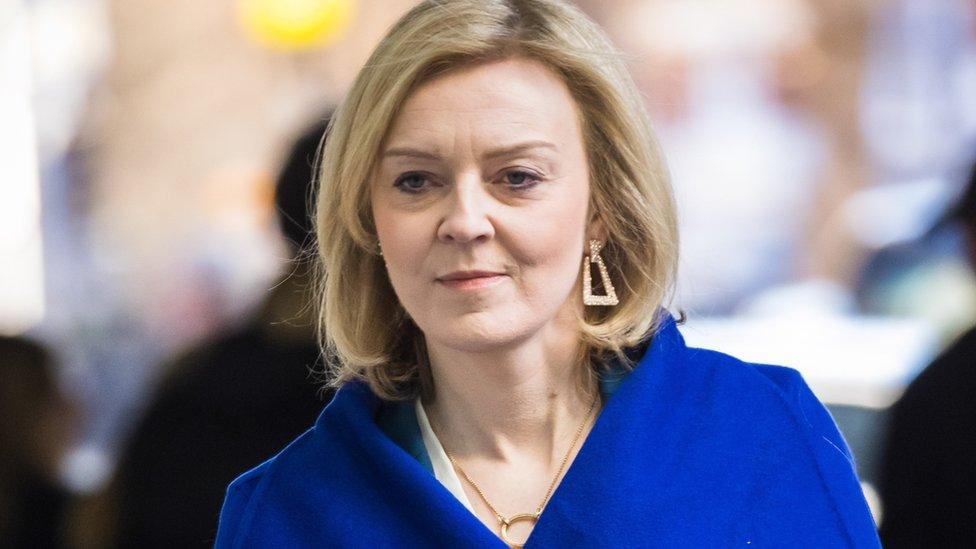
- Published11 May 2022
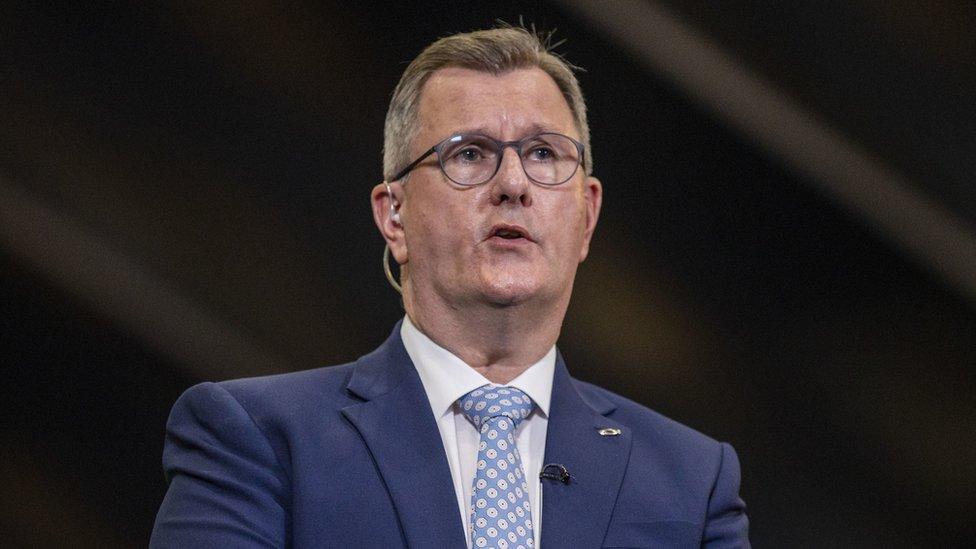
- Published9 May 2022
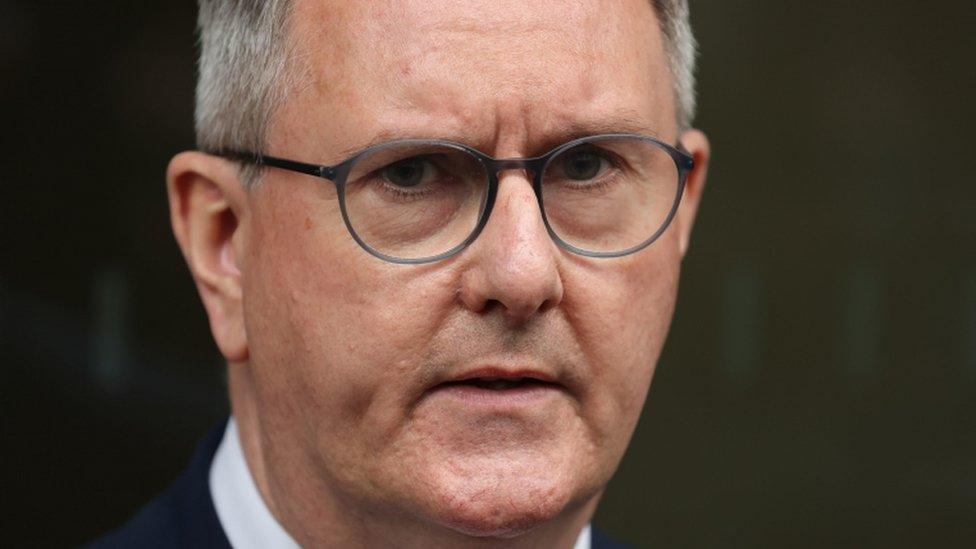
- Published9 May 2022
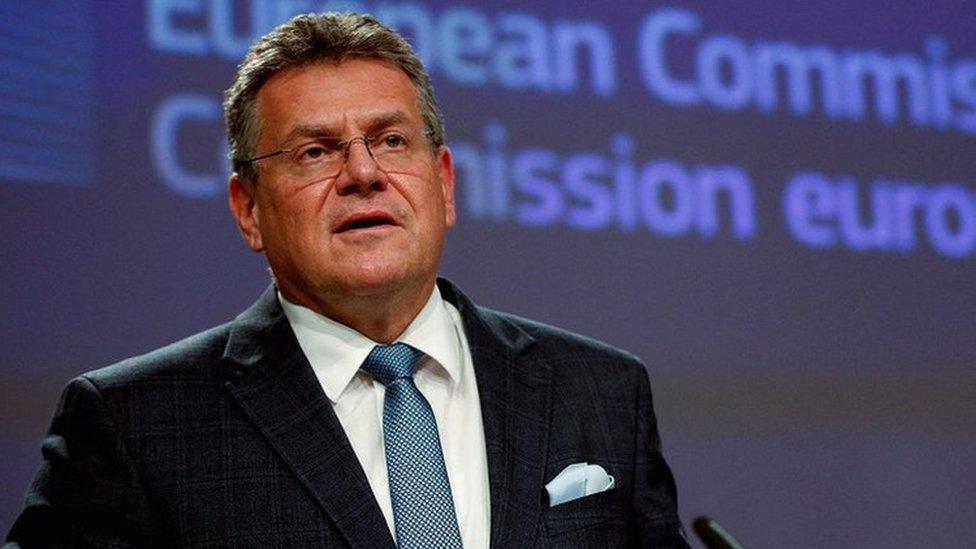
- Published13 October 2021
